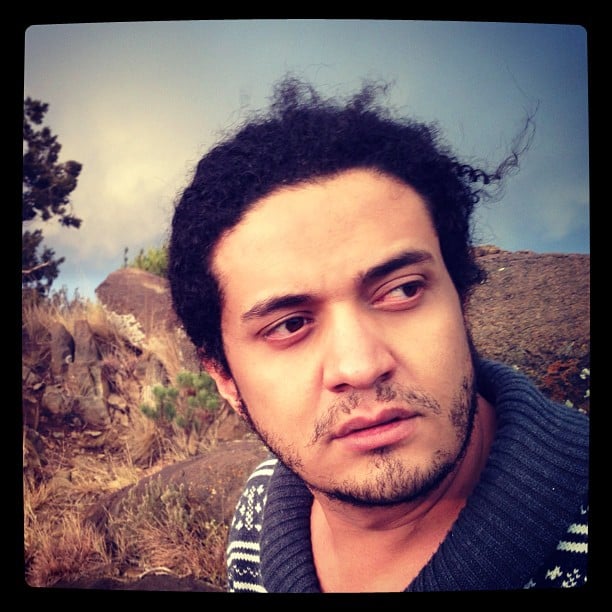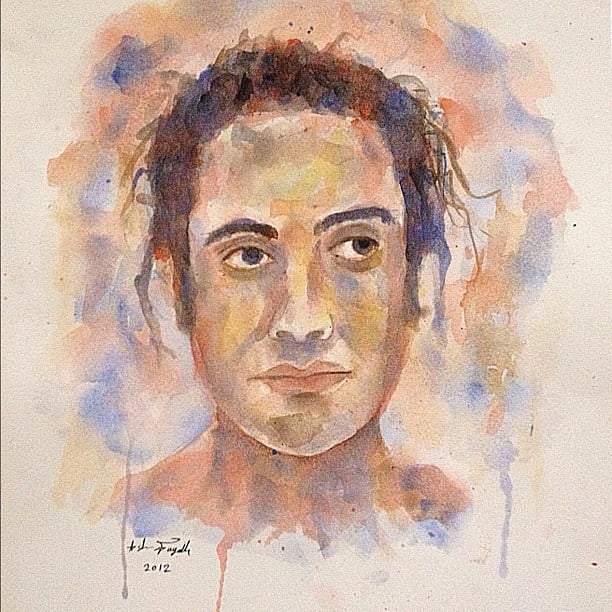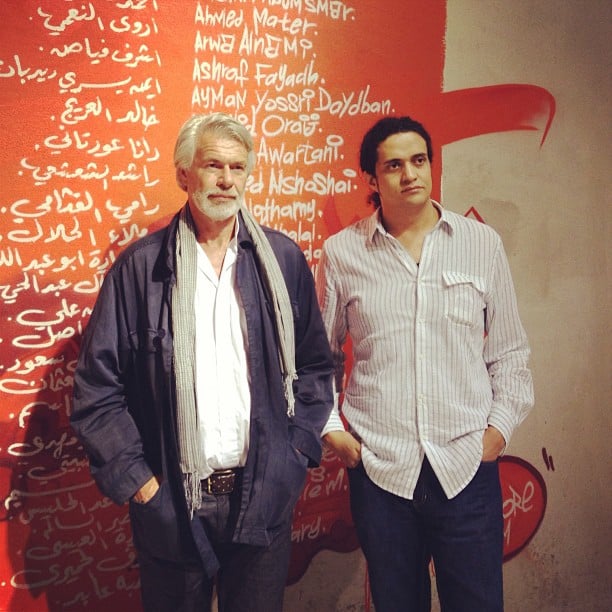People
Poet and Artist Ashraf Fayadh Sentenced to Death in Saudi Arabia
He has 30 days to appeal the ruling.

He has 30 days to appeal the ruling.

Sarah Cascone

After nearly two years in prison, Palestinian poet and artist Ashraf Fayadh, age 35, was sentenced to death by Saudi Arabia on Tuesday, November 17.
The Independent reports that the Human Rights Watch has seen the trial documents, and the charges against Fayadh include apostasy and abandoning his Muslim faith. Other artists who have recently been prosecuted by conservative regimes include Iranian cartoonist Atena Farghadani and Ukrainian filmmaker Oleg Sentsov.
Fayadh is a member of Edge of Arabia, a British Saudi art organization, which on November 16 installed two murals at the United Nations as part of “Our Mother’s House,” an arts initiative run with Art Jameel in support of the women of southwest Saudi Arabia. The two groups were highlighted at the Armory Show’s Focus Section 2015.
“He was instrumental to introducing Saudi contemporary art to Britain and connecting Tate Modern to the emerging scene,” Edge of Arabia co-founder Stephen Stapleton told the Guardian. “He curated a major show in Jeddah in 2013 and co-curated a show at the Venice Biennale later that year.”
Fayadh was arrested on January 1, 2014, having been accused of having promoted atheism in his 2008 book of poems, Instruction Within. He was initially detained by police in August of 2013, but was released on bail just a day later. On social media, Fayadh’s friends have alleged that when police were unable to prove his atheism, they became critical of his long hair and smoking habit.
“They accused me [of] atheism and spreading some destructive thoughts into society,” Fayadh told the Guardian, explaining that his poems were “just about me being [a] Palestinian refugee… about cultural and philosophical issues. But the religious extremists explained it as destructive ideas against God.”

What appears to be a self-portrait of Ashraf Fayadh.
Photo: Ashraf Fayadh, via Instagram.
Initially sentenced to four years in prison and 800 lashes in 2014, Fayadh was subsequently retried. He has 30 days to appeal the new ruling, which was made in accordance with Sharia Islamic law, on which the Saudi justice system is based.
A prosecution witness who testified in the trial reportedly accused Fayadh of cursing God, Muhammad, and Saudi Arabia. Fayadh believes that the complaint stemmed from an argument he had at a cafe with another artist about contemporary art.
The Guardian reports that court documents quote Fayadh as saying “I am repentant to God most high and am innocent of what appeared in my book mentioned in this case.”
“I was really shocked,” said Fayadh of the new verdict, “but it was expected, though I didn’t do anything that deserves death.”

Ashraf Fayadh with Chris Dercon ( director of Tate Modern who is stepping down in 2017 to lead Berlin’s Volksbühne theater) at an art opening during Jeddah art week.
Photo: Ashraf Fayadh, via Instagram.
“We condemn these acts of intimidation targeting Ashraf Fayadh as part of a wider campaign inciting hate against writers and using Islam to justify oppression and to crush free speech,” reads an online petition pushing for the poet’s release.
Soon after his initial imprisonment, 100 Arab intellectuals demanded his release. The Arabic Literature website has begun translating his poems, starting with Frida Kahlo’s Mustache and Asylum, into English. The Freedom for Ashraf Fayadah Facebook group has 57 members.
“This case is yet another black mark on Saudi Arabia’s dismal human rights record in 2015,” Human Rights Watch Middle East researcher Adam Coogle told the Guardian. “The trial records in this case indicate clear due process violations, including charges that do not resemble recognisable crimes and lack of access to legal assistance.”